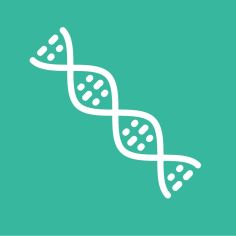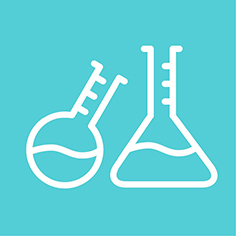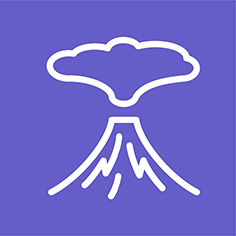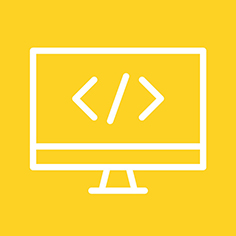Portal Natural Sciences
Our "Portal Natural Sciences" offers library support for your studies, research, and teaching. Here, you find information about current events, courses and support services for scientists, useful tools for academic work, entry points to start your literature search with and contact details for consultations.
Up to date
Scientific Writing

Scientific Writing: Free Courses for Uni Bern
Would you like to improve your writing skills for publication in the natural sciences or medicine? Our academic writing tutors will help you. Register for workshops on key topics (delivered via Zoom).
scite.ai
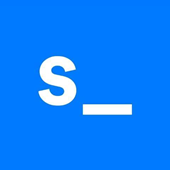
scite.ai: Now Available at University of Bern
AI-powered research tool to discover and evaluate scientific literature through Smart Citations, a useful system that shows whether articles support, contrast, or simply mention a given claim.
Coffee Lectures
Coffee Lectures Science & Medicine

Useful information perfect for a coffee break – join our Coffee Lectures
Our Coffee Lectures offered news and valuable information for your scientific work, covering topics from searching to writing. Short and to the point. Currently, our Coffee Lectures are "on hold" as we are rethinking the format. Please book a Coffee Lecture on demand instead (see below).
Get your Coffee Lectures on demand
Book your personal, customized Coffee Lecture on demand, for example for your next group meeting: Coffee & Bit(e)s (pdf)
Previous Lectures
Have you missed one of our lectures? Check out our YouTube playlist for previous lectures since spring 2023.
Research support
General Literature search
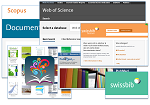
Are you starting a basic literature search for your studies or research?
Get an overview of relevant tools, i.e., literature search websites, for finding scientific literature at the University of Bern.
Tools for scientific literature search
For further information, one-to-one teaching or group courses and literature searching for the sciences, please contact us.
Systematic literature search

Are you starting a systematic search for writing a review paper?
We provide information on the main steps for conducting a systematic literature search.
How to conduct a systematic literature search
For further information and one-to-one coaching, please contact us.
Scientific writing
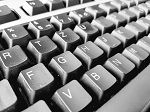
Writing tips and courses
Would you like to improve your scientific writing skills? The University Library offers support and courses:
Reference management
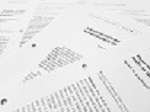
Reference management software and courses
Manage your papers and citations professionally. Courses in reference management offered by the University Library can be found here:
Geodata

Spatial information for research and studies
We provide a variety of Swiss geographic data for members of University Bern. Get access here:
Open Science

Online publication of scientific articles and research data
Do you have questions about Open Science standards and Open Access publishing? Do you need guidance on how to fulfill the Open Science and Open Research Data requirements of the Swiss National Science Foundation or other funding agencies? The University Library provides information, consulting and courses on online publication, open access, research data management and more:
Consultations
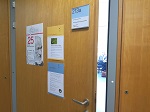
Subject-specific and personal support
Our team of scientific consultants supports you in getting the information you need for your studies and research. We offer consultations and courses upon request.
Feel free to contact us.
Tools
Analysis, statistics, graphics and data management
R
For statistical computing
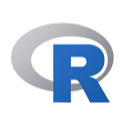
The R project
R is an excellent open-source software for statistical analyses and graphical representations.
Anaconda
Data Science Platform

Anaconda
Anaconda package manager for Python and R: Anaconda is a free toolset for data science applications. It enables easy installation and combination of a large selection of Python and R code libraries and effective management of programming environments and software packages.
Scientific writing and illustration
SciFlow
SciFlow
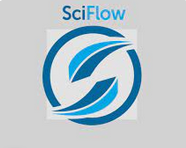
SciFlow makes it easy to write and format scientific texts – whether for a specific journal or as a student paper. SciFlow offers many templates, grammar checking in German and English, an upload function for Word manuscripts and the option of citing with Zotero, Mendeley etc. For groups, SciFlow enables real-time collaboration and the shared use of all references in the text. Finished work can be exported to PDF, LaTeX and Word, among others. The Bern University Library has licensed SciFlow for the entire UniBE campus.
LaTeX
LaTex
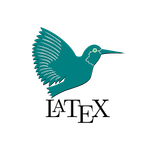
LaTeX is a word processing system that is ideal for creating scientific texts of all kinds. It has particularly useful functions for creating complex documents, and is noteworthy for its stability, flexibility and its high typographic quality. LaTeX is open source, can be used free of charge and is available for all common operating systems.
BioRender
BioRender

BioRender provides thousands of icons and many templates for professional scientific illustrations, graphs, presentations, and posters. Ideal for visualising cellular processes, experimental setups, laboratory techniques and much more.
Turnitin
Turnitin
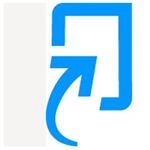
The University of Bern uses Turnitin to detect plagiarism. The software issues detailed test reports that can be edited interactively. Turnitin can be used by lecturers and university administration staff with their Switch edu-ID via a browser login. Students cannot use Turnitin to scan work.
Reference management
Zotero
Zotero
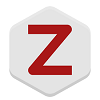
Zotero is a reference management software that can be used on all common operating systems. Simple to use, it is the ideal software for managing literature, even for smaller papers, and can therefore be used profitably right from the start of your studies. Zotero is free and open source. The University of Bern and the PHBern have set up a Zotero Institutional Plan for Zotero cloud storage. By registering with the institutional e-mail address, unlimited storage is available in the Zotero Cloud.
EndNote
EndNote
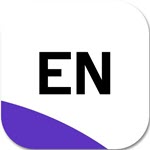
EndNote or EndNote Online supports you in managing references, writing papers and academic publishing: from searching for literature to collecting and organising references, formatting citations and creating a complete bibliography. Members of the University of Bern receive a discount on the product licence via the UniBE software shop.
BibTeX
BibTex
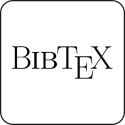
BibTeX is recommended for creating citations and bibliographies in documents created with LaTeX word processing. BibTeX is free and open source and is included in the usual LaTeX standard installations (e.g. MikTex for Windows, MacTex for Mac, TeX Live for Linux). The bibliographic data is managed in a .bib file, which can be created and modified with various reference management softwares. The open source software JabRef is specially tailored to BibTeX files. JabRef is platform-independent and runs on all common operating systems.
Citavi
Citavi

Citavi supports you in writing papers: from researching, collecting and organising references and citations to formatting citations and creating a complete bibliography. Citavi offers helpful functionalities for organising knowledge, especially for humanities scholars and social scientists. Members of the University of Bern and the PH Bern can use Citavi free of charge with a campus licence.
Mendeley
Mendeley

Mendeley is a free reference management software that is available for Windows, Mac and Linux. It is used to organise scientific articles and PDFs and to create citations and bibliographies. Mendeley makes collecting, managing and sharing literature and in-text citations simple and straightforward.
Publication
ORCID
Orcid
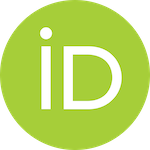
ORCID iD is a 16-digit number combination that uniquely identifies researchers and their publications regardless of spelling variants or transcriptions of one’s name. You can register your personal ORCID number free of charge. The personal profile on orcid.org can be used to manage information on publications, training and employment as well as funding. It is possible to choose individual authorisation settings for each item. ORCID is a non-profit initiative supported by universities, academies, funding organisations, scientific publishers and libraries worldwide.
Altmetric Explorer
Altmetric Explorer

Altmetric Explorer is a service that can be used to measure the reception and dissemination of research results on the internet. Unlike traditional bibliometric approaches, it does not measure citations in scientific publications, but rather the dissemination of research on the internet, for example via social media channels such as X or in blogs as well as in non-academic newspapers, Wikipedia, policy documents and many other sources.
Contact and consultation
Contact
Team science infomation consultants
If you need further information regarding library services for the sciences, please do not hesitate to contact us:
Consultation
We provide personal consultations upon request
Our consultation hours provide individual and subject-specific support, on site, by phone, email or videoconference.
Science information consultants

- Name / Titel
- Dr. Aline Frank
- Funktion
- Subject librarian biology; co-leader of research support services including coordination of the academic writing team
- aline.frank@unibe.ch
- Phone
- +41 31 684 89 75

- Name / Titel
- Dr. Lisa Kattner
- Funktion
- Subject librarian physics and astronomy, mathematics and statistics, computer science, technology
- lisa.kattner@unibe.ch
- Phone
- +41 31 684 94 68

- Name / Titel
- Dr. Eri Amsler
- Funktion
- Subject librarian geography, geology, chemistry, biochemistry, sustainable development, and natural sciences in general
- eri.amsler@unibe.ch
- Phone
- +41 31 684 94 67

